Star Trek: Voyager Almost Ended With The Borg Assimilating Everyone
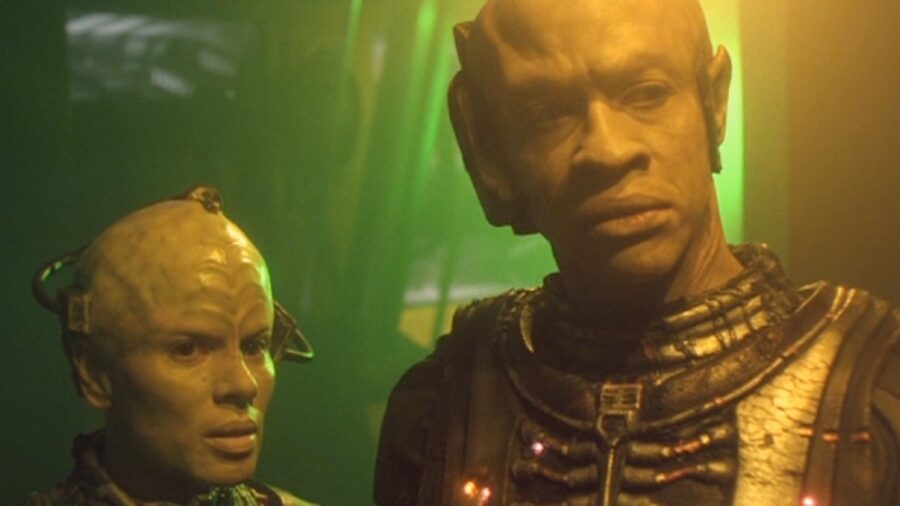
Star Trek: Voyager delivered an ambitious final episode that brought the crew home in style, complete with a sacrifice from a future version of Janeway and a nasty face-off with the Borg Queen. Fans more or less enjoyed this finale, but I can’t help but think audiences would have enjoyed it more if the show stuck with its original idea. According to writer and future Star Trek: Discovery producer Bryan Fuller, an earlier version of Voyager finale “Endgame” would have involved a reverse assimilation virus and Captain Janeway destroying all of the Borg ships rapidly approaching the planet Earth.
Reverse Assimilation
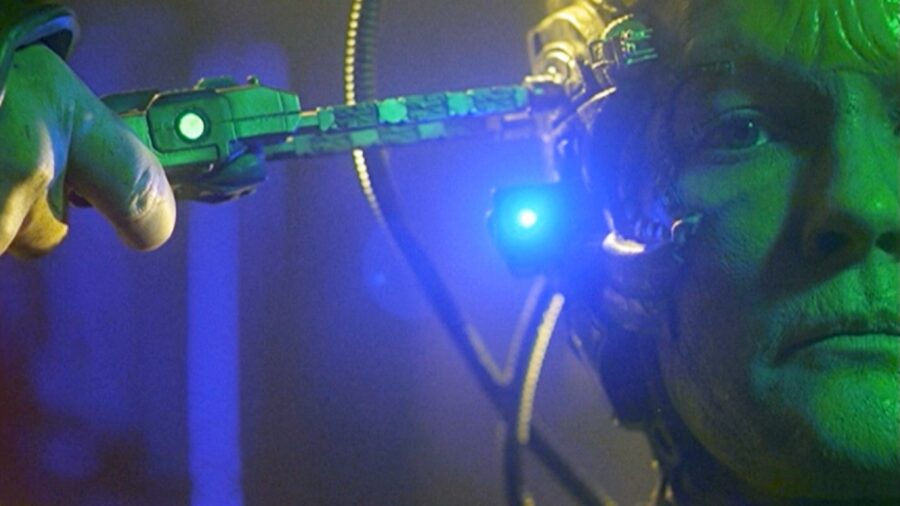
How did such an ambitious idea for Voyager’s finale come about? As I previously wrote about, Janeway actor Kate Mulgrew had a strong desire for her iconic captain “to go down with the ship, but not at the full cost of her being.” This resulted in the initial story idea where Janeway would voluntarily surrender her ship to the Borg, but only because she was planning to unleash a secret weapon.
In this draft of Voyager’s finale, Janeway and her crew had prepared a special “reverse assimilation virus” that could help them take over a Borg ship from the inside. That was why Janeway was willing to surrender to her foe: to place herself where she could strike at the Borg Collective where it was most vulnerable. Among other benefits, this would give the crew access to the transwarp conduits used by their enemy, and Voyager would take advantage of one such conduit to return home to planet Earth.
Voyager Destroys Them All

However, the Delta Quadrant is always crawling with Borg, and after Voyager made it home in this earlier draft of the finale, more ships from the Collective came through the transwarp conduit in hot pursuit. According to Bryan Fuller, the original “Endgame” was going to have “this great final image of the Borg armada approaching Earth, and then out of the belly of the beast of the lead ship came Voyager, destroying all of the other Borg in its trail.” Admittedly, this would have been a killer finale, providing the kind of cheer-worthy moment normally not found outside of a summer blockbuster film.
An Epic Finale
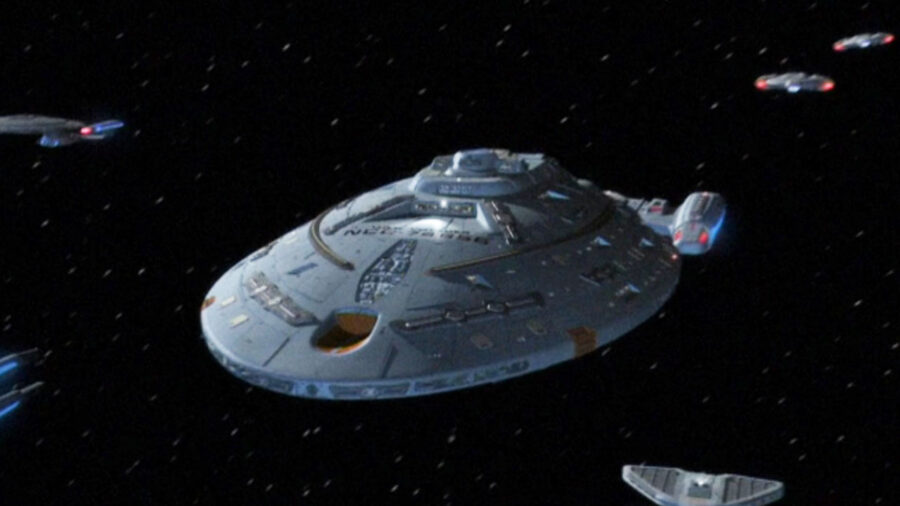
Fuller, though, also saw this as a way to add some emotional resonance to the Voyager finale. He said that “It felt like an epic conclusion to Janeway’s journey with the Borg, and freeing Seven of Nine.” He wasn’t entirely clear whether Janeway would die in this version of “Endgame,” but either way, she’d be making a major sacrifice in order to free Seven of Nine from the monsters that had taken so much of her life away.
Unimatrix Zero
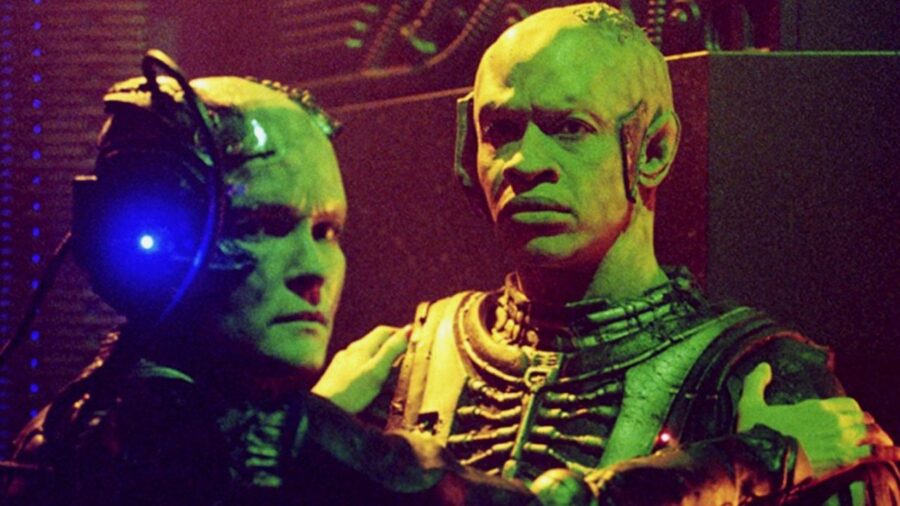
Obviously, this great idea for the Voyager finale (including a Borg armada approaching Earth that could have put the opening of First Contact to shame) never came to fruition, but that doesn’t mean we didn’t see some of these ideas make it to the screen. The two-part episode “Unimatrix Zero” featured Janeway infiltrating a Borg ship and unleashing a virus intended to help some rogue Borg retain their original memories long enough to fight back against the Collective. Unfortunately, the Borg Queen discovers a way to modify this virus and essentially turn the rebel drones into hostages for her negotiations with Janeway.
Paramount Wouldn’t Let It Happen
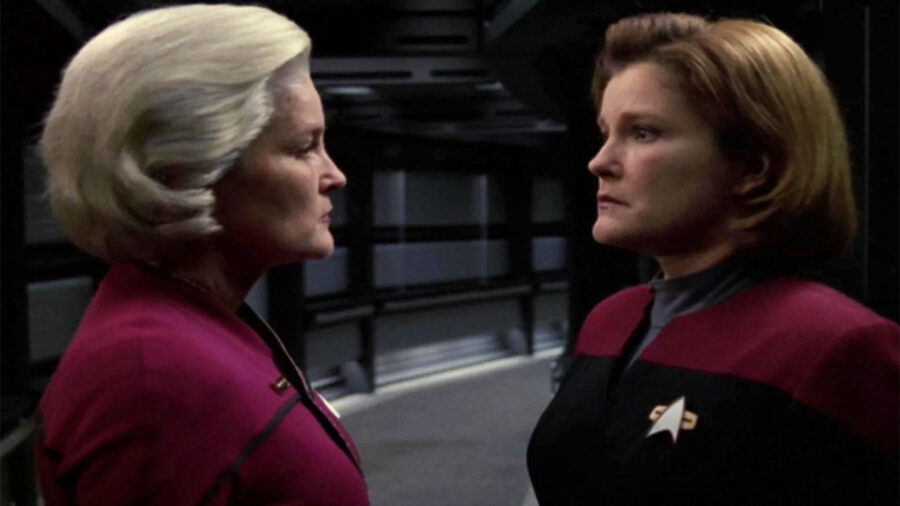
All these years later, I don’t think there is much wrong with the Voyager finale we got except for the vexing fact that it revolved around Janeway violating the Prime Directive to get home, something that would have ended the series after episode one if she had been willing to break the rules. Still, I can’t deny that the sight of the Voyager triumphantly bursting out of a Borg vessel and destroying an entire fleet to save Earth and liberate Seven of Nine could have made this the best Star Trek finale ever aired.
It’s tough to get Paramount to actually green light a good idea, though. As Fuller and other writers soon discovered, the network is a real-life Borg Collective of empty suits against whom resistance was, and always shall be, futile.












